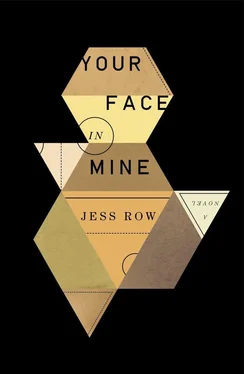What allowed Wu this extraordinary equanimity, this attitude that we would think of as extremely broad-minded even in our own time? One obvious interpretation would be that Wu was simply responding to the wishes of the younger members of his family, who had grown up in captivity with no memory of their home in China. Another interpretation would be that even if Wu was ostensibly free to leave, he was forced to leave members of his family behind as a diplomatic gesture. There is no evidence to sustain or disprove these theories. The only surviving evidence that comes directly from Wu’s own hand is his letters, which point to a remarkable transformation of his attitude toward the Jurchen. As Tan Zhiqiang put it in his entry on Wu in the New Encyclopedia of Traditional Chinese Literature, “This was a change almost unheard of — as his experience was almost unheard of — in the whole three thousand year span of classical Chinese poetry.” In his letters and particularly his poems, Wu evolved what we might call the only indigenous Chinese concept of racial equality or unity, through the interceding of a mysterious concept or substance called miao.
Miao is a hapax legomenon — a word which, as the Oxford Encyclopedia of Linguistics puts it, “occurs only once in a written corpus, either narrowly or broadly defined.” In this case the “corpus” is the entire known body of traditional (pre-1911) Chinese literature. Barring the discovery of antecedent texts that have not yet seen the light of day, it appears that Wu himself coined miao, combining the characters  (that is, “people,” “fire,” “water,” and the term ren, which means equality, justice, or humane action). The idea that a scholar would invent a new word is considered something of a scandal in Chinese philology, and during the Ming and Qing Dynasties there were lengthy debates among imperial orthographers over whether miao should be included in dictionaries of variant or rare characters, and whether a character invented and used by one person (if indeed that was the case) could be said to constitute a word at all.
(that is, “people,” “fire,” “water,” and the term ren, which means equality, justice, or humane action). The idea that a scholar would invent a new word is considered something of a scandal in Chinese philology, and during the Ming and Qing Dynasties there were lengthy debates among imperial orthographers over whether miao should be included in dictionaries of variant or rare characters, and whether a character invented and used by one person (if indeed that was the case) could be said to constitute a word at all.
The hypothesis that Wu himself coined the term miao is borne out by the letters and poems themselves, which hint at a discovery or revelation that Wu is reluctant to put into words. Consider the following poem, dated April — May 1121:
What is it that separates friends and strangers?
What is it that separates foreign and intimate?
Strange, indeed, are its transmutations,
This miao that swallows up five colors.
Some speak of ancestral emptiness,
A nothing that is yet an infinity.
But when miao is mentioned,
No one can say anything at all.
In a passage in a letter to Meng Faru sent nearly five years later, Wu offers his most explicit summation of miao:
Have you ever heard a young student playing the lute strike a wrong note that causes your ears to shrink back in displeasure? Listen closely to the sound [ zhi yin ] of the wrong note and you will hear the harmonic principle [ li ] of the universe. Miao is the wrong note that harmonizes all human appearances and allows us to forget “near” and “far,” “dark” and “light,” “Chinese” and “barbarian.”
The late Ming commentator Zhu Bing dismissed Wu’s miao poems as “pseudo-mysticism” and “quackery disguised as immortality”; those phrases were used to marginalize Wu for nearly three centuries. And of course it is easy to understand why the concept of miao would seem unacceptable in late imperial China, where, to quote Edmund Chang, “Chinese identity was constituted more and more as a fortress mentality, a preservation of a static order, and a resistance to outside influence other than the strict hierarchy of tribute.” This attitude about the continuity and essential unity of the Chinese tradition has defined Western scholarship and popular impressions of China up to the present. Indeed, many contemporary commentators on China treat Chinese nationalism as a monolithic, xenophobic, chauvinistic, and at least tacitly racist assumption that China is, as Pamela Taylor put it on Fox News recently, “ethnically superior… a natural center for world domination.”
While miao does not constitute anything like a dissident tradition in Chinese culture — since the term begins and ends in the work of one poet who lived and worked mostly outside the borders of the empire — it does represent the imaginative capacity of the Chinese tradition as it existed in a more cosmopolitan, more unstable world. A situation not unlike the world China finds itself in today.
• • •
Two years later, when my dissertation was all but finished, Pearl Chen, my senior adviser, took me to lunch at the Faculty Club. She was an imposing woman who’d always reminded me a little of Julia Child, with a broad, doughy face and a booming voice. Her grandfather was Chinese ambassador to Washington under the Kuomintang; her father married into the Boston Bradfords and worked at the Federal Reserve; she’d started her own career in the Fifties as a CIA operative at New Asia College in Hong Kong. Talking to her was like touring a vast, eccentrically arranged museum, half full of Tang funerary ceramics, half full of old copies of Foreign Affairs .
Now, she said finally, after the dessert dishes were cleared, Kelly, we have to talk about the predicament you’re in.
I stared at her and put down my fork.
What predicament is that?
I think you’re in the wrong business. She drummed her fingers on the tablecloth. The problem isn’t the work, she said. Not to put too fine a point on it, but it’s you . You’re a little too insistent , dear. A little too vehement. You can’t expect China to be something it’s not. You can’t expect the world to be something it’s not.
I stammered something in protest. Whatever it was, I’ve now forgotten it. And it doesn’t matter.
I’m not telling you what to write, she said. Or what to have written, at this point. I just don’t think anyone will hire you. You’re expected to show a little more fealty. If you were Chinese, you might stake this kind of claim. I hate to put it so crudely, but there it is. There’s only so much one can prove in chasing down eccentrics. It’s like digging up some obscure neo-Platonist and trying to prove that Pauline Christianity really is a misreading of the pre-Socratics. Or that Jesus was actually a Buddhist. You know these people who do this kind of thing. Of course, you can find popular success that way. But I don’t recommend it. There’s no stability in success. Just ask Joan Crawford. Or the Khmer Rouge.
I was beginning to feel the tremors again, for the first time in two years. I felt my eyes wanting to close. The world tilted sideways, slightly, to the right, then the left.
On the wall directly over Pearl’s shoulder hung an enormous Art Nouveau poster of a woman bicycling down a gravel path beneath a canopy of trees, her long skirts tucked under her. Probably in the Bois de Boulogne, I thought. The legend underneath: Cyclos Le Monde. What does it mean, I thought, to hate yourself, not for what you are but for what you aren’t? To hate yourself as a kind of double negative, a self-canceling equation? I had the urge to steal something. I felt myself retiring from ambition. Enough, I thought, to simply live. To cultivate your own garden. You’re asking the world to be something it’s not. Was this the end of my dreamtime?
Читать дальше

 (that is, “people,” “fire,” “water,” and the term ren, which means equality, justice, or humane action). The idea that a scholar would invent a new word is considered something of a scandal in Chinese philology, and during the Ming and Qing Dynasties there were lengthy debates among imperial orthographers over whether miao should be included in dictionaries of variant or rare characters, and whether a character invented and used by one person (if indeed that was the case) could be said to constitute a word at all.
(that is, “people,” “fire,” “water,” and the term ren, which means equality, justice, or humane action). The idea that a scholar would invent a new word is considered something of a scandal in Chinese philology, and during the Ming and Qing Dynasties there were lengthy debates among imperial orthographers over whether miao should be included in dictionaries of variant or rare characters, and whether a character invented and used by one person (if indeed that was the case) could be said to constitute a word at all.










